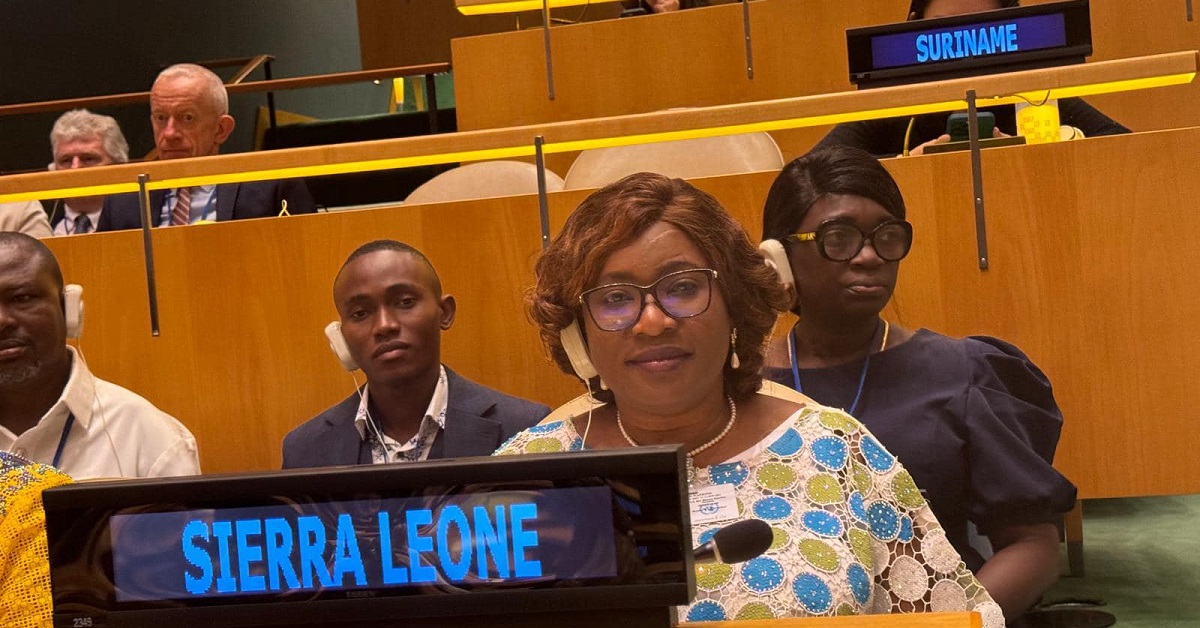Minister of Social Welfare, Melrose Karminty, emphasized the government’s crucial role in developing policies that support youth mental health in Sierra Leone.
Speaking at a sideline event organized by the Sierra Leone Permanent Mission to the United Nations and Forbes, Karminty highlighted the challenges posed by drug and substance abuse, which have exacerbated mental health issues among the country’s young population.
The minister stressed the importance of integrating mental health services into primary healthcare systems and ensuring access to these services without stigma. She also discussed the government’s community-based programs that train local health workers to provide mental health support, bridging the gap in access and utilizing existing infrastructure.
Karminty emphasized the need for public awareness campaigns to educate communities about mental health, signs of distress, and available resources. She highlighted the positive outcomes of outreach programs that engage youth through schools and community centers, creating safe spaces for dialogue.
Collaboration between government, NGOs, and international organizations was another key aspect mentioned by the minister. She stressed the importance of sharing best practices and resources to foster innovation in mental health support, even in low-tech settings. The minister cited traditional methods such as peer support groups as effective in rural areas where technology may not be as accessible.
Karminty emphasized the importance of community engagement and the inclusion of youth voices in policy formulation. She highlighted the need for adaptable policies that promote scalable solutions and can be implemented across different environments. The minister also discussed the government’s rehab strategy shift from a clinical to a psychosocial and community-based approach to address drug and substance abuse.
“As a Ministry, we have developed standard operating procedures to guide the rehab process, and our professionals use the SOPs as a guidelines to deliver MPHS,” the minister pointed out.
The minister concluded by highlighting the importance of investing in capacity building for mental health professionals. Training programs that empower local healthcare providers lead to sustainable mental health services, she said.











